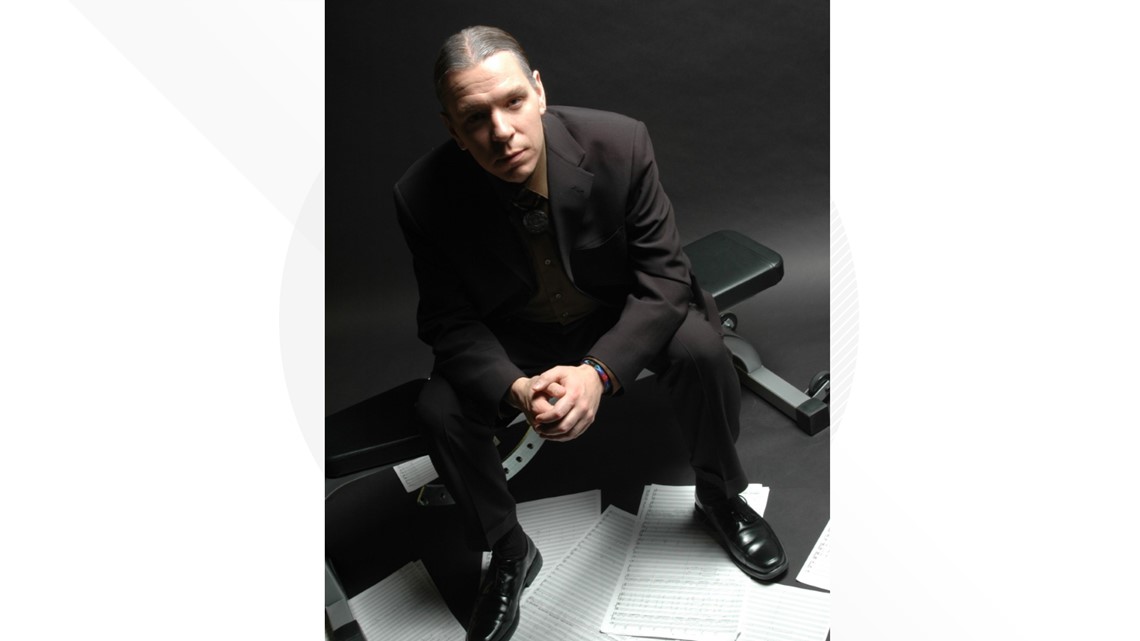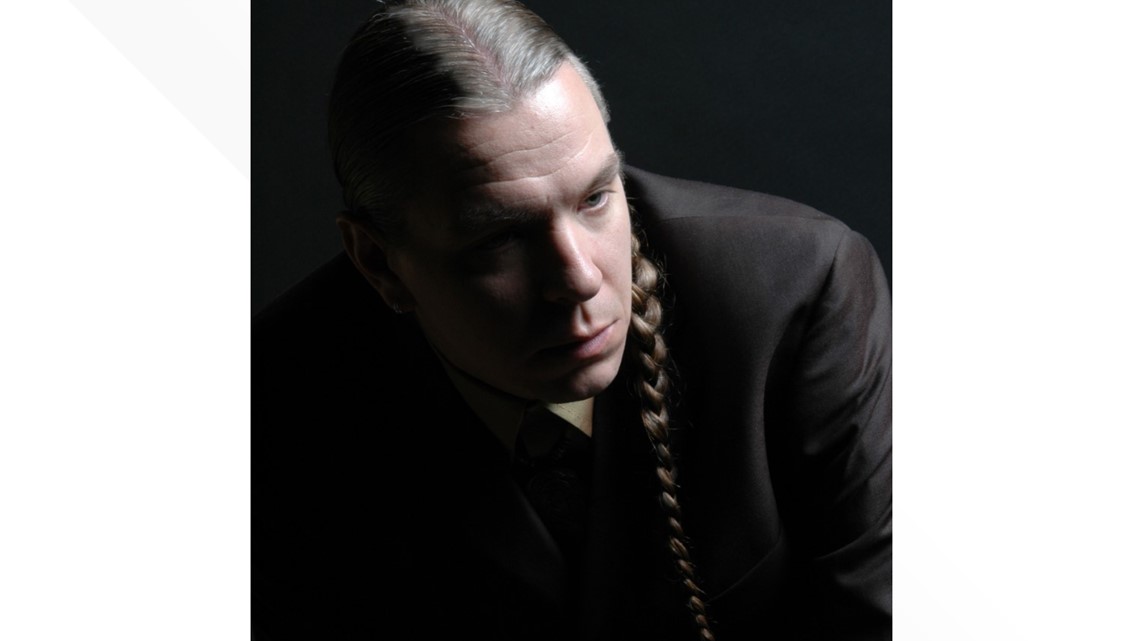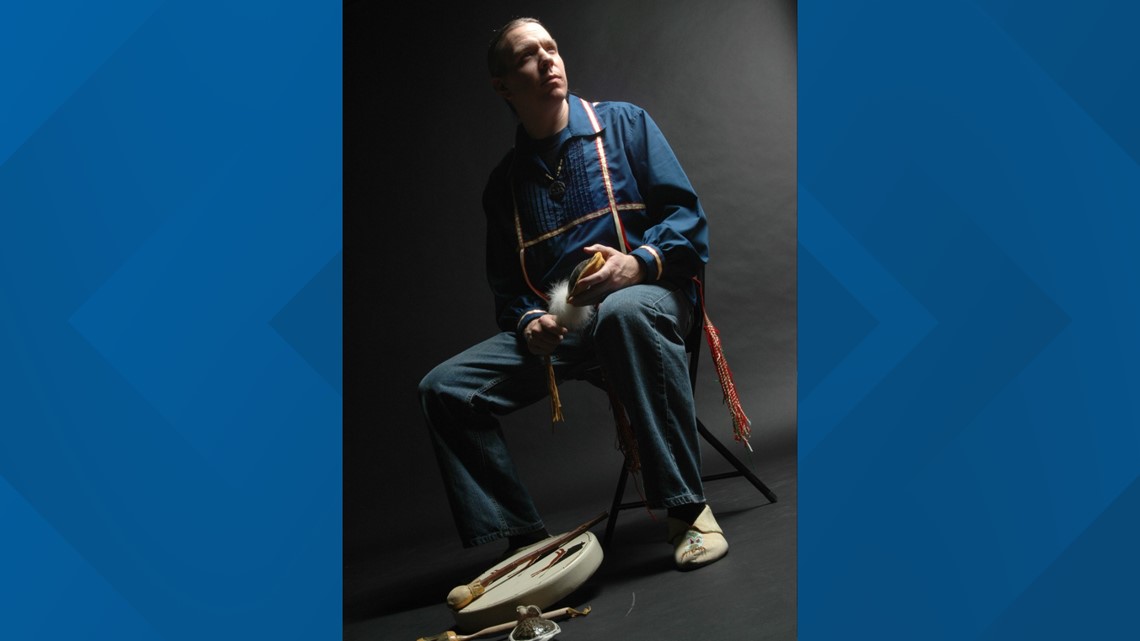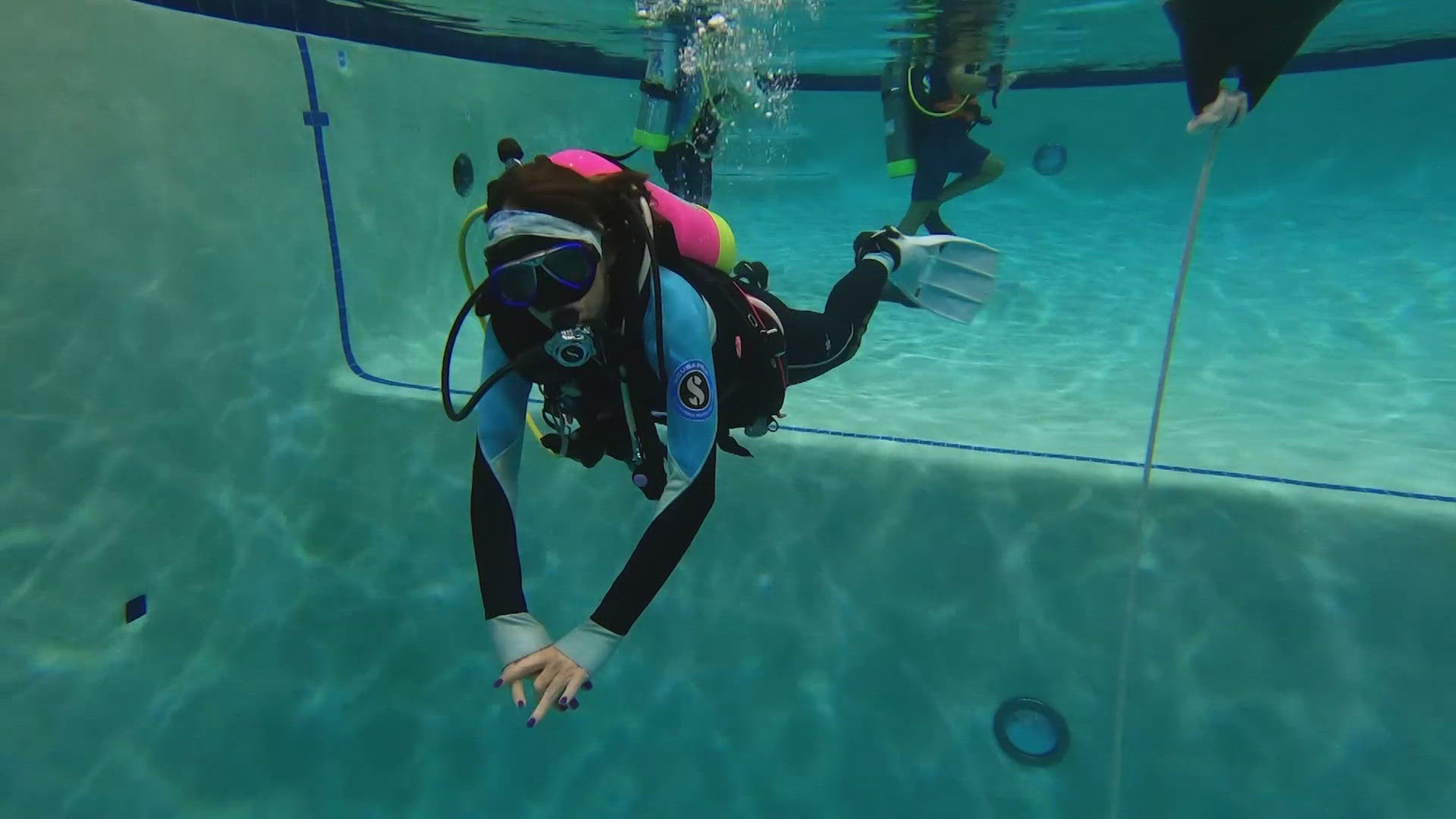DALLAS — The Dallas Symphony Orchestra's love-themed program this weekend includes a world premiere of a bassoon concerto by an American Indian composer.
In addition to Tchaikovsky’s timeless rendition of "Romeo and Juliet," the symphony will perform Jerod Impichchaachaaha’ Tate's "Ghost of the White Deer" bassoon concerto.
Principal Bassoon Ted Soluri commissioned the work from Tate using funds the symphony provides its principals, spokesperson Kristen Turner said.
Tate is well-known in the music world for his combination of classical and American Indian music. Born in Norman, Okla., to a Chickasaw Indian father who loved the piano and an Irish mother who was a professional dancer and choreographer, Tate has been surrounded by artistic endeavors his entire life.
"Raised in rehearsals," he said he was "saturated" in music from an early age, promptly declaring to his parents at age 8 that he was going to become a professional concert pianist just a few months after beginning his lessons.
And he did become a professional musician, graduating first from Northwestern University and then the Cleveland Institute of Music.
He got his start as a Chickasaw classical composer thanks to his mother. When he was just 23 years old, she asked him to compose the score to a ballet she was creating based on American Indian stories from the Northern Plains and Rockies.
At first he declined. He didn't think he could do it. But he couldn't get the idea out of his mind. He started to create it.
At age 23, Tate had become a composer.
WFAA had the opportunity to speak with him ahead of this weekend's premiere about his career and the piece itself. Below is that interview, which has been edited for length and clarity.


WFAA: How did you get to where you are today?
Tate: My mother provided a way for me to express my two very, very strong identities of being a classical musician and an American Indian with that ballet. Fortunately, the response that I got from both the Indian community and the classical community was, "Jerod, you've got to do this."
I took it very, very seriously. I'm the kind of guy, I don't impulse buy, I have to really, really think things through, and so what I thought was if I'm going to be a composer, what does this mean? What kind of a composer am I going to be? I decided I was going to focus solely on American Indian history and culture. And that I would identify as a Chickasaw classical composer. So all of my works are all based in American Indian culture and history.
A very important influence was Béla Bartók-- he's known as being an ethnomusicologist of his own people. Bartok went around and recorded his own people singing their folk music and took that home and transcribed an entire lexicon of composing based on the sound of his own folk music. So, that was very important to me, that's what I do. I transcribe American Indian melodies constantly and use that as material. I am looking for a very specific ethos that is specific to American Indian country. I'm really grateful for how this all worked out and I'm very fortunate, very happy with what I do.
WFAA: When you sit down to compose, what does that process look like for you?
Tate: It's not an exact science every single time, but what I can tell you is that I'm focused specifically on American Indian music and culture. Our American Indian stories are just phenomenal and really lend themselves to theatric expression. So I look for those stories. Almost consistently I'm looking for stories that I think are really great, driving catalysts for writing music. I can be very rhapsodic, but it's generally with a very specific story in mind.
For instance, the last story that I just composed to is "Ghost of the White Deer." It's a bassoon concerto that follows the story of a Chickasaw warrior who was in love with this gal and she's the daughter of the Minko, the tribal leader. The Minko, he doesn't like this kid, so he says 'You can marry my daughter if you can procure a sacred white deer,' and of course he knows that the albino deer was incredibly rare and the chances of him finding one was almost zero. The kid says 'Okay, I will go out and find one," and that's the beginning of the story.
So there's a very specific storyline that this concerto follows and it's continuous; it's very rhapsodic in that sense. I came up with that concept, and I immediately started creating that outline based on the chapters of the story. And the bassoon for me has a timbre that's very, very close to the deer's voice, so I romanticize that, that's the deer call-- that's my romantic juices going.
That's an example of that. And then what I do is I pick certain melodies from my tribe that I like, that I feel work well and I start to expand on those. Of course I'm abstracting all of this material, so sometimes the melodies are very, very clear as tribal melodies and other times I'm abstracting them like any artist does. I'm working with melodies and also rhythmic phrases-- our phrasing and our singing has a specific meter to it that I utilize which influences all my time signatures, honestly. So that's kind of an example of how this particular piece came to be, and they'll come together a little bit differently with each piece, but those are the elements that go into my thinking when I'm writing a work.


WFAA: What is the emotion behind this piece? Tell me more about the storyline.
Tate: I don't want to give it away! No, that's perfectly fine. The story is is that he does go out, and he does encounter a white deer. But the story is actually unfinished because while he does shoot the deer, hoping that the deer will go down, he doesn't. The deer charges him. But then, story-wise, we don't know what happens — the boy has not come back home for several months, so the tribe has given up, thinking he has died.
But the girl continues to see the ghost of this white deer in campfire smoke every single night, running with an arrow in his chest. And so she believes that it's only a matter of time, that the deer will fall, and her lover will come home. So she waits. It's a little bit of a Romeo and Juliet kind of ending, it's tragic in that sense, but her love is strong and she's waiting for this guy, that's the ending of it. So that just really captures me. It's really beautiful. I just love it, it's just very romantic.
WFAA: Is that a story that a lot of people in the Chickasaw nation would know? How do you find these stories?
Tate: Oh yeah, a lot of people know that story. So, just about everything I pick people know. And there's some things that we don't, it's that way with any culture. With American history, a lot of people know American history, and a lot of people don't know American history.
So it's fun because it's also another way to preserve and to pass on our own legends to my own people. I mean, my son isn't born with the knowledge of all these stories. But because he knows that I'm composing them, he knows these stories.


WFAA: You were speaking about the ethos behind your work earlier. Can you tell me more about that?
Tate: Ethos, you know, kind of means a feel of something, the environment, literally, of something. And I say that word specifically because the pieces that I compose, particularly about Chickasaw, are very environmental. When I spent time going back to the homelands in Mississippi, my father said, 'When you go back home, you're going to understand very, very quickly why it was difficult to leave,' because we were removed from Mississippi to Oklahoma in the 1830s. It was a mass exodus of all the tribes to eastern Oklahoma.
Well, Mississippi and that whole Southeast area south of the Appalachians, the American woodlands, they are just breathtaking. So I tap into those trees. They're huge. Like I said, breathtaking. And there is an ethos to that that I feel, and it's very environmental. The weather is very specific. The feeling is very specific. The mornings, the humid mornings that are just gorgeous, I mean it's just incredible out there. So I think about that a lot. I think that in Indian country in general, our traditional environments are so incredible. Aboriginals from this area, our cultures are all based on our environments, and so I feel ethos with that, it informs my orchestrations, just how I write for everything.
WFAA: Anything else you'd like to add?
Tate: Ghost of the White Deer is one of the works I've done that's very important to me because of the legend, and I mean Dallas Symphony is just unbelievable. And Ted, the bassoon soloist, is my old friend from the Cleveland Institute of Music, so there's a lot of personal and artistic investment in this.
When it comes to this performance, I'm just thrilled that the second half is my concerto and then Tchaikovsky-- his Romeo and Juliet Overture-Fantasy is just one of my favorites.
And ultimately this is my goal. I've been involved for a lot of my career in what I call special concerts, like 'Oh, we're featuring minorities or we're doing this specific [kind of thing],' but my intention is to be programmed with repertoire. That's actually the way it is now, I'm paired with repertoire these days, and I'm very happy with that. Because I'm composing repertoire. That's my intention.
________
The DSO will perform its loved-centered program Thursday through Sunday. Tickets for the performances start at $57 and can be purchased here.
Attendees can also add on a "Sweetheart" experience that includes complimentary champagne and desserts ahead of the performance on Saturday for $35.



